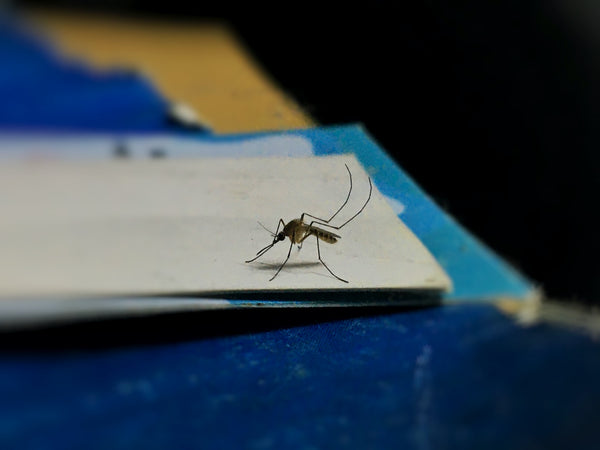Mosquitoes are a common sight during the summer months, but what happens to them during winter? Do mosquitos come out in winter? Do they die off, or do they find a way to survive? Turns out, mosquitoes can survive in cold weather – but there are some things you need to know about their behavior in winter. In this blog post, we will discuss where mosquitoes go during winter and what you can do to keep them away from your home.
Mosquitoes are small, extremely annoying insects that are present in nearly every corner of the world. While they can exist in a variety of climates and geographical regions, they remain most active during warmer months due to their reliance on standing water to complete their lifecycle. Their eggs can hatch into larvae within hours when exposed to such water, with larvae maturing into adults after only piggybacking on some surface water until adulthood. Females, unlike males, consume blood from a host organism as part of their lifecycle maturing process.
At what temperature do mosquitoes become inactive?
Mosquitoes can become inactive when the temperature drops below 10 degrees. At this temperature, they are too cold to move and feed and therefore remain inactive. While some mosquitoes may become active again once temperatures rise, others will stay dormant until the next breeding season.
How do mosquitoes survive the winter?
Depending on the species and location, some mosquitoes survive the winter while others do not. All males of most mosquito species tend to die after mating in the fall, so without an existing population, there is no hope for survival.
However, many female mosquitoes enter a state of hibernation known as diapause. This allows them to become dormant, often by burrowing into rotten logs or cracks in the ground, for up to six months while they await more hospitable outside conditions.
During this period of rest, females will typically lay a final batch of eggs that also enter a form of diapause and whose maturation comes to a halt until warm weather greets them once more.
How do mosquitoes hibernate?
Mosquitoes have several mechanisms for surviving through winter months when the intense cold keeps the majority of insects inactive. The exact hibernation process depends on the species and its location, as some mosquitoes will breed through all seasons in warmer climates. In areas with extreme freezing temperatures, female mosquitoes remain dormant during winter, waiting to emerge when spring brings warm weather and standing water for egg laying.
To survive cold winters, adult mosquitoes may hibernate in burrows underground or under tree bark, or they may rest in tall grasses or inside buildings until light levels and temperatures increase again. Some species even produce special proteins that keep them from freezing while they sleep. Once spring arrives, these puzzle pieces come together to create a migration path back to the wetlands where their cycle will start anew.

What happens to mosquito eggs during the winter?
Mosquito eggs can survive temperatures well below freezing, as long as there is moisture available. During the winter, these eggs are actually in a state of suspended animation called diapause. The mosquito eggs can resist the colder temperatures through biochemical changes like releasing anti-freeze proteins that protect them against freezing. During this time the eggs don't require any oxygen and appear to be inactive and dead when viewed with the naked eye. Once spring arrives, the warmth triggers these eggs to hatch and release mosquito larvae, restarting the cycle. Understanding how mosquitoes spend their winters helps reduce possible infestations in the summer months.
Conclusion
So there you have it! A brief overview of everything you need to know about mosquitoes and their lifecycle. As we head into winter, remember that these pests will be looking for a warm place to hibernate. Be sure to check for any cracks or openings around your home where they could potentially get in. And if you find any mosquito eggs, make sure to destroy them so they don't hatch come springtime.
FAQ
Mosquitoes can enter a state of hibernation during the winter, where they become inactive and go into a period of inactivity. This is usually triggered by low temperatures, which cause the mosquito eggs to stop developing and eventually die. Some species may also produce special proteins that help them survive the cold.
No, cold winters do not necessarily kill mosquitoes. Depending on the species and their location, some mosquitoes can survive through the winter by entering a state of hibernation and burrowing into the ground or other sheltered areas. They will typically lay eggs before this period begins, which will also enter diapause and remain dormant until spring arrives.
During the cold weather months, the female mosquitoes often find sheltered areas to survive. These generally include wood piles, compost bins, garages, and shed that are insulated by surrounding trees or buildings.
Yes, only female mosquitoes hibernate during the winter months. Male mosquitoes have shorter lifespans and die shortly after mating, so they don't usually survive to experience winter weather. Female mosquitoes, however, can engage in a state of dormancy known as diapause that allows them to withstand frigid temperatures.
Generally, mosquitoes die if exposed to temperatures below 10°C for a long enough duration. They also cannot survive in temperatures above 40°C.
Mosquito eggs are highly resilient and able to survive through cold temperatures. During the winter, female mosquitoes lay their eggs in water-filled containers such as tree holes and rock crevices or among aquatic vegetation where they become submerged and insulated from the cold weather.











